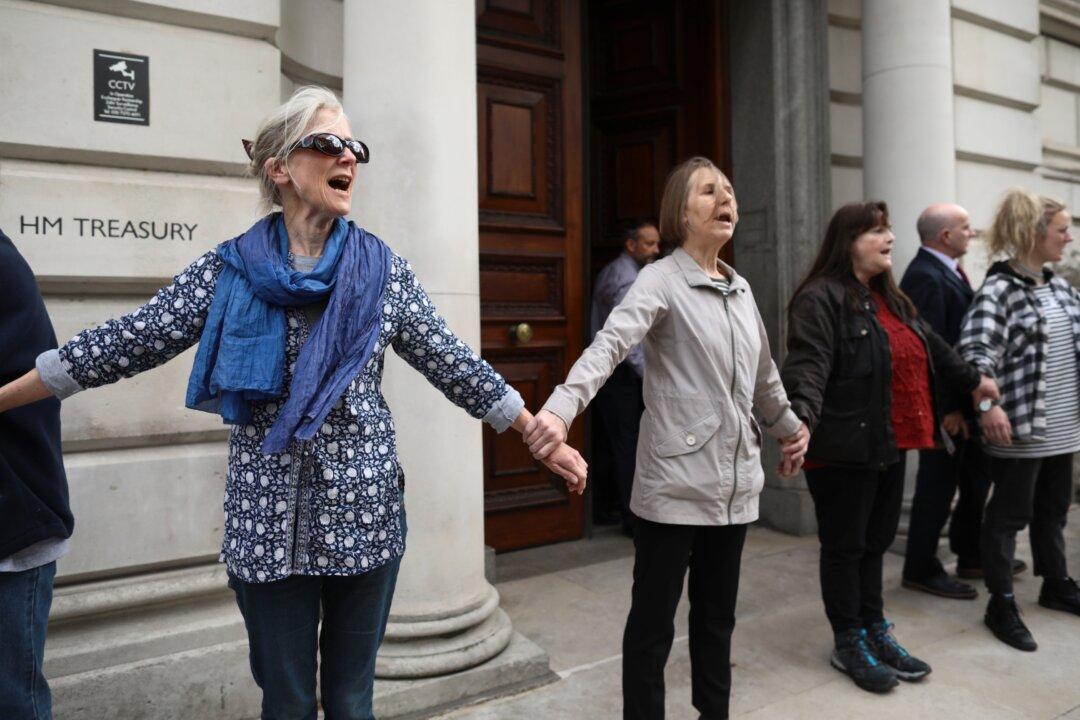More than £50 million ($68 million) has been spent on policing Extinction Rebellion (XR) protests since 2019, the Metropolitan Police said on Friday ahead of another round of protests planned by the environmental activist group.
The climate activist group staged prolonged demonstrations in April and October 2019 and September 2020, when protesters blocked entrances, halted traffic, glued themselves to buildings and roads, defaced a statue of Britain’s wartime Prime Minister Winston Churchill, and disrupted newspaper printing.





